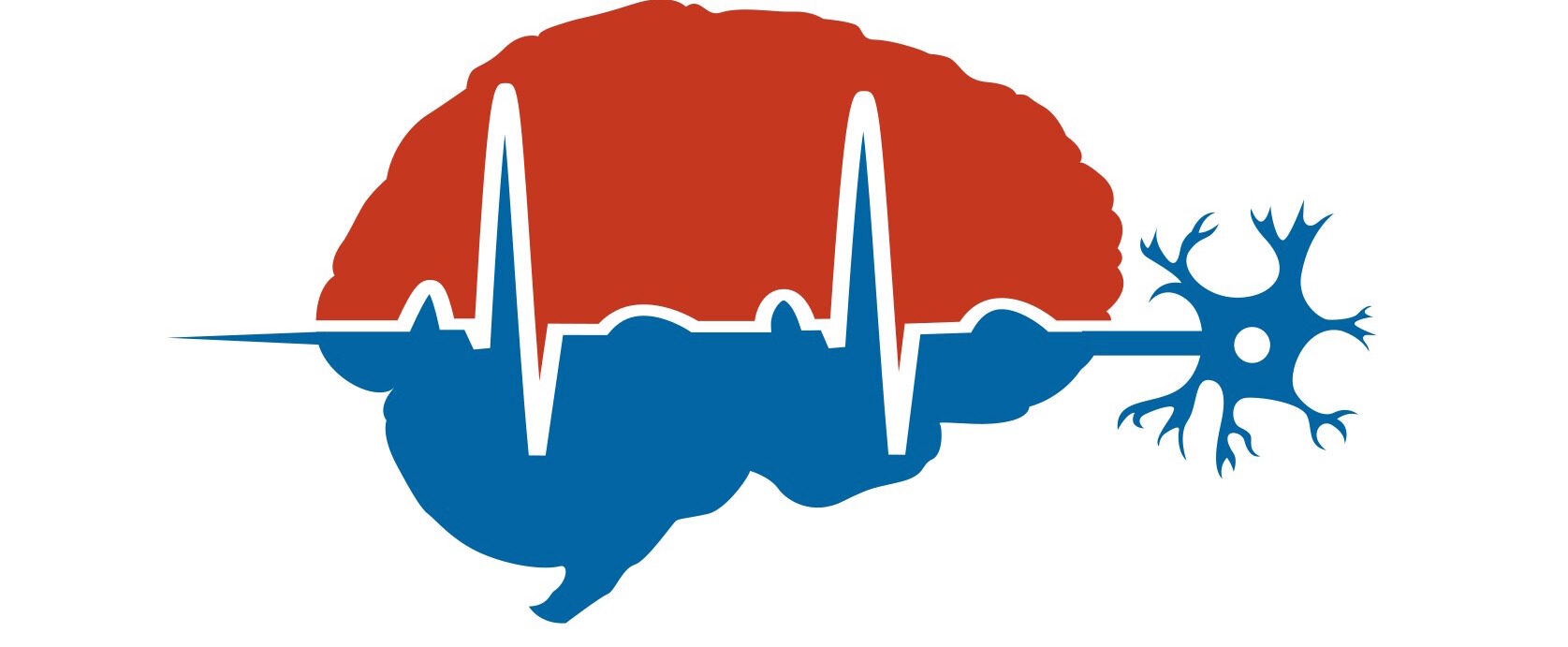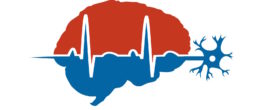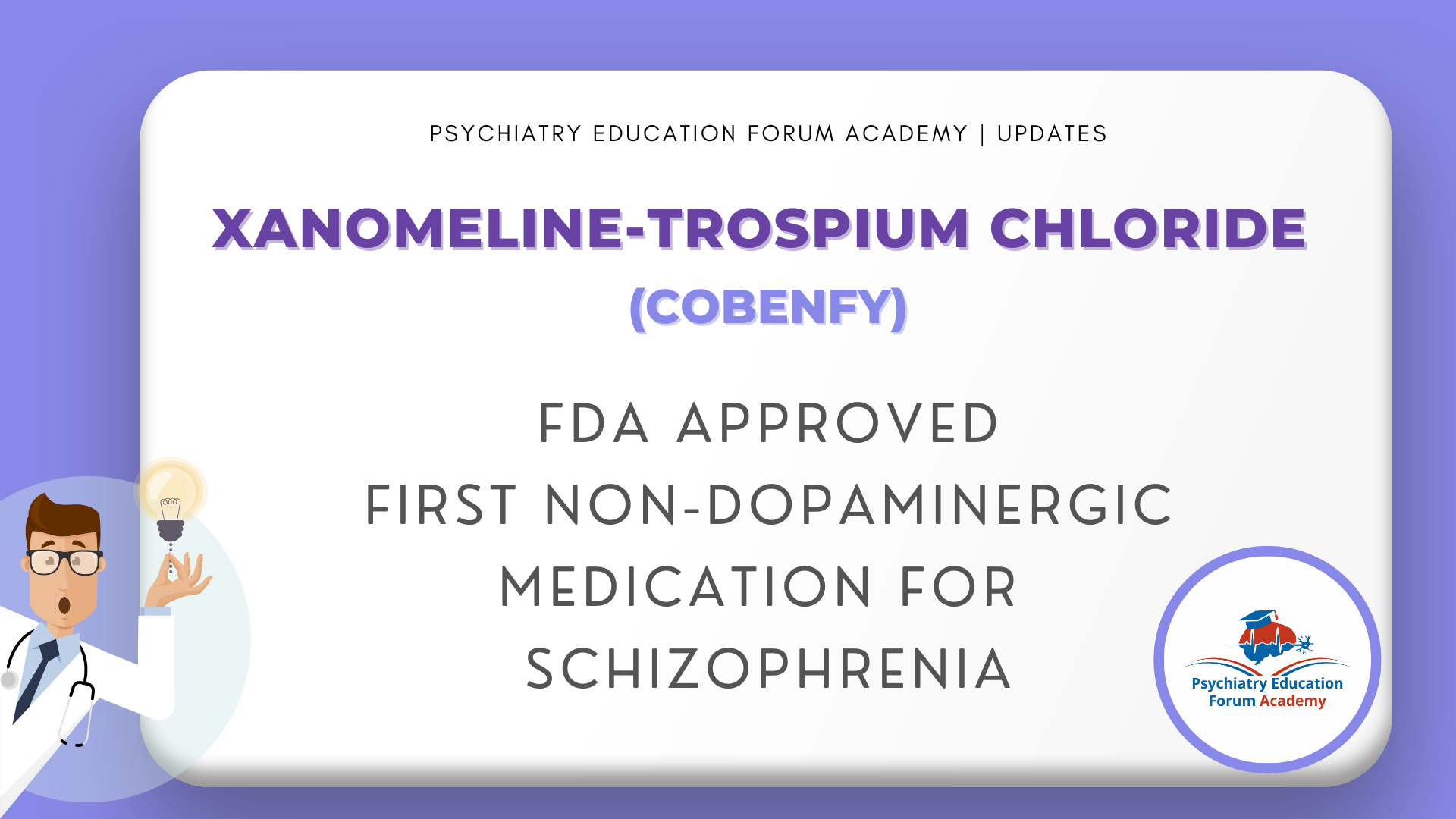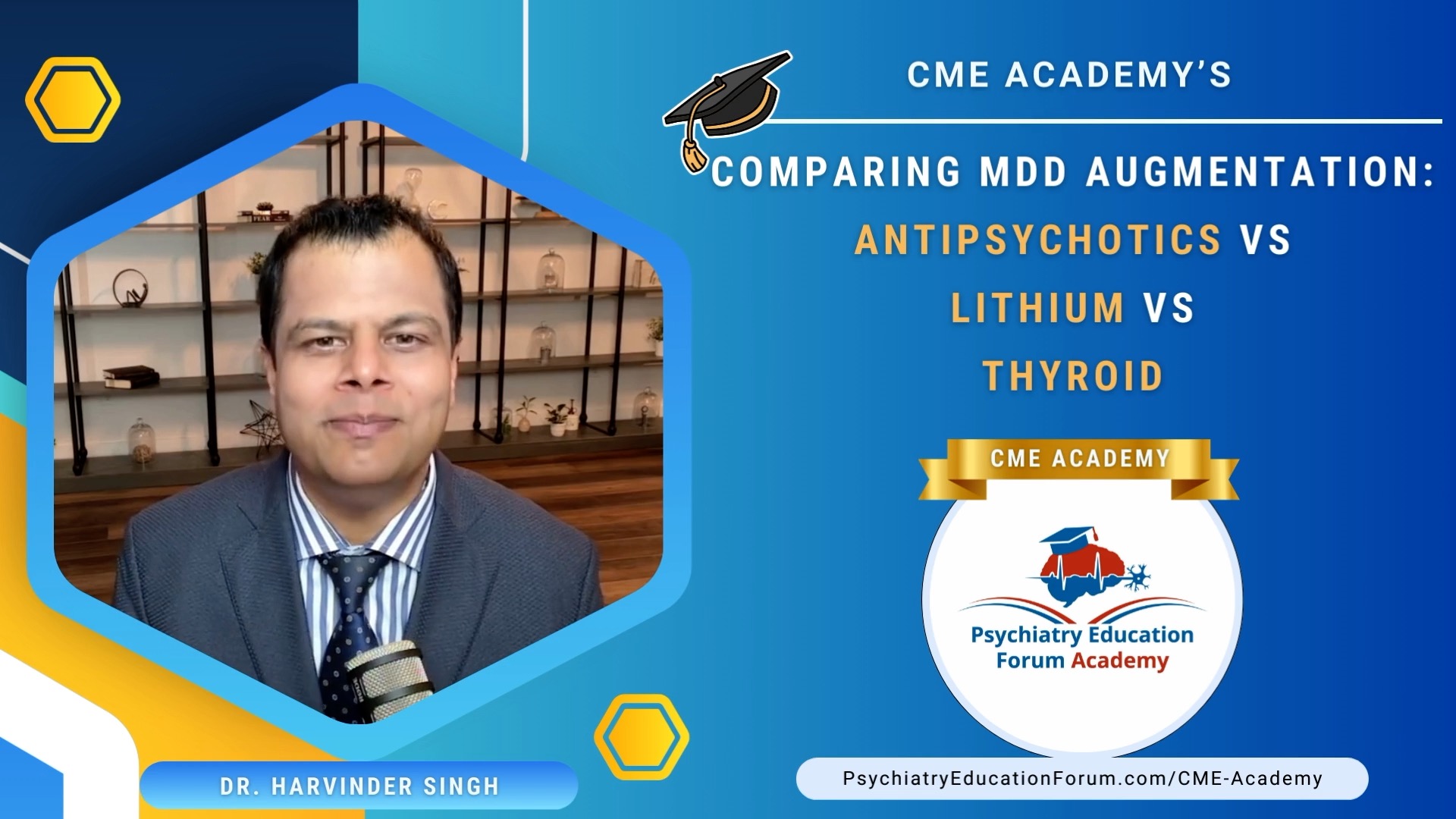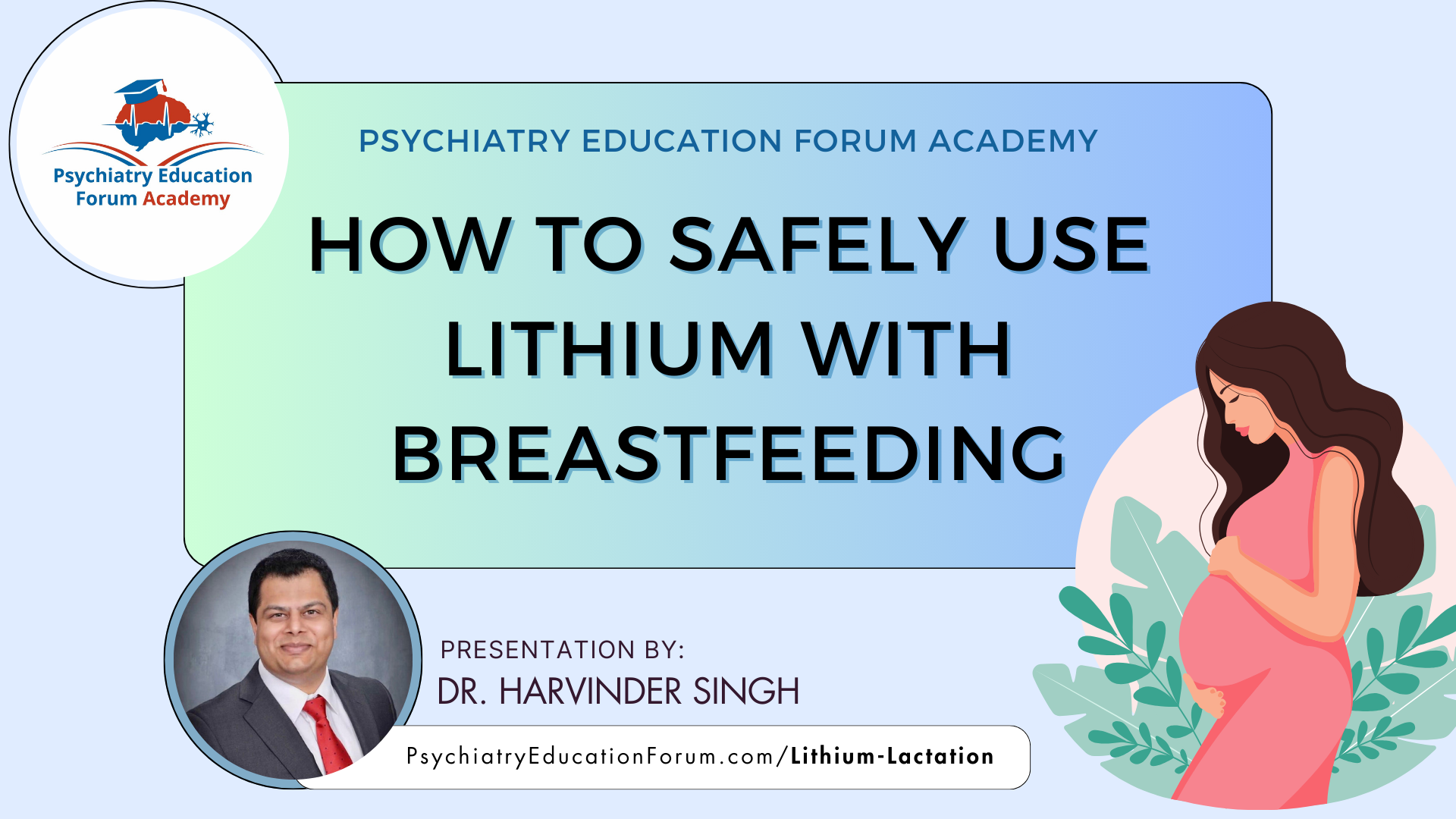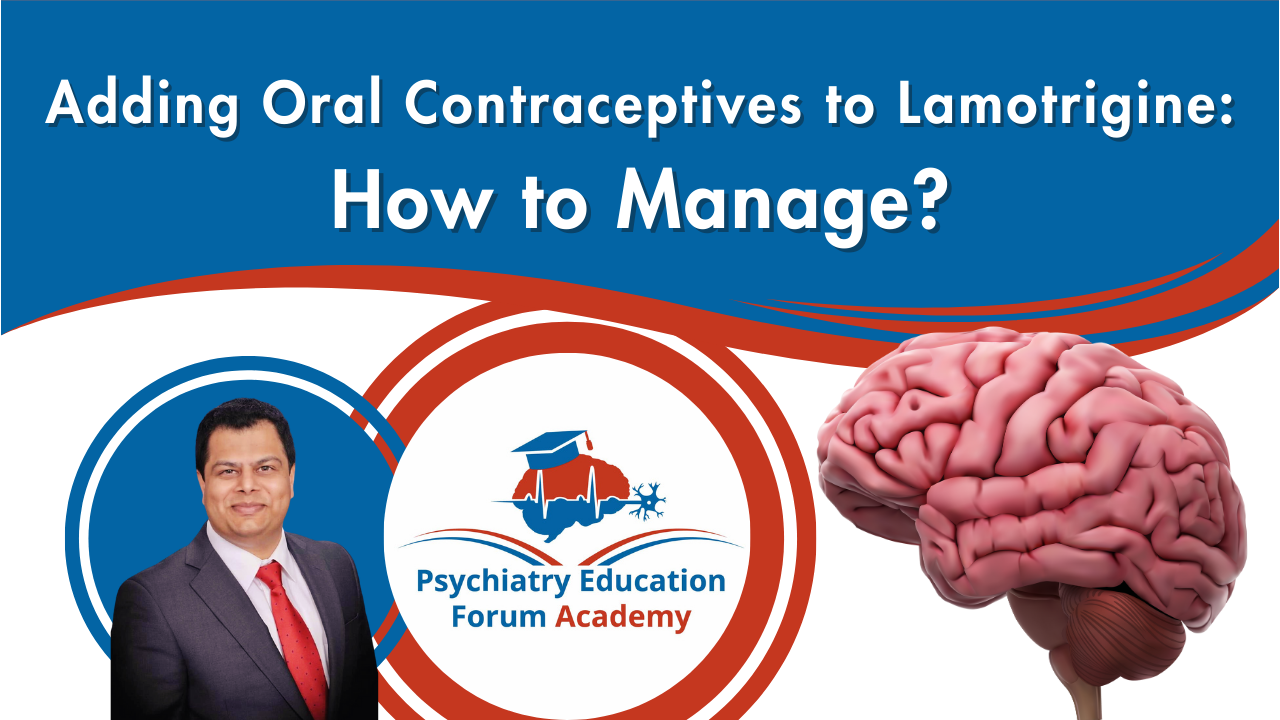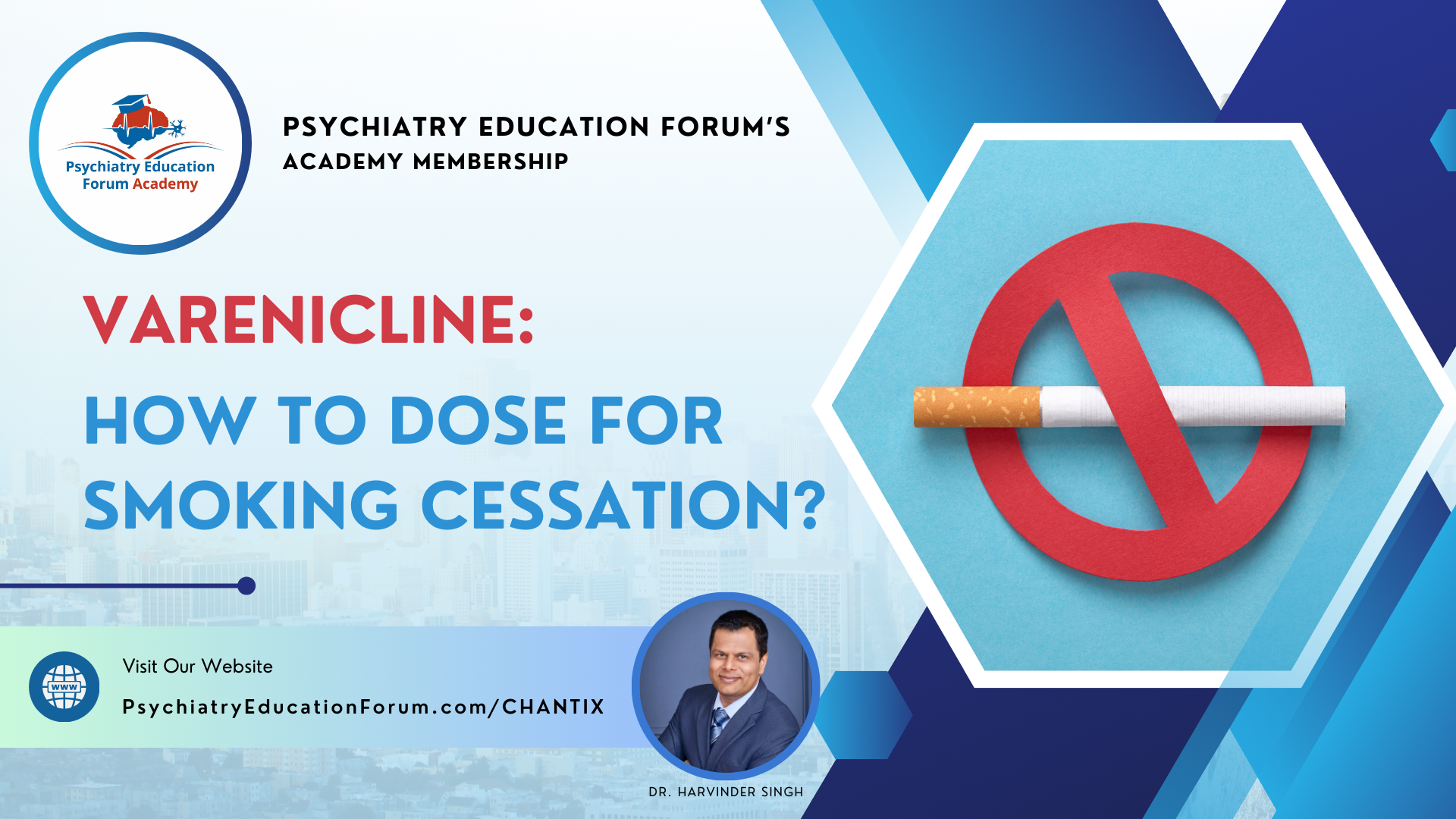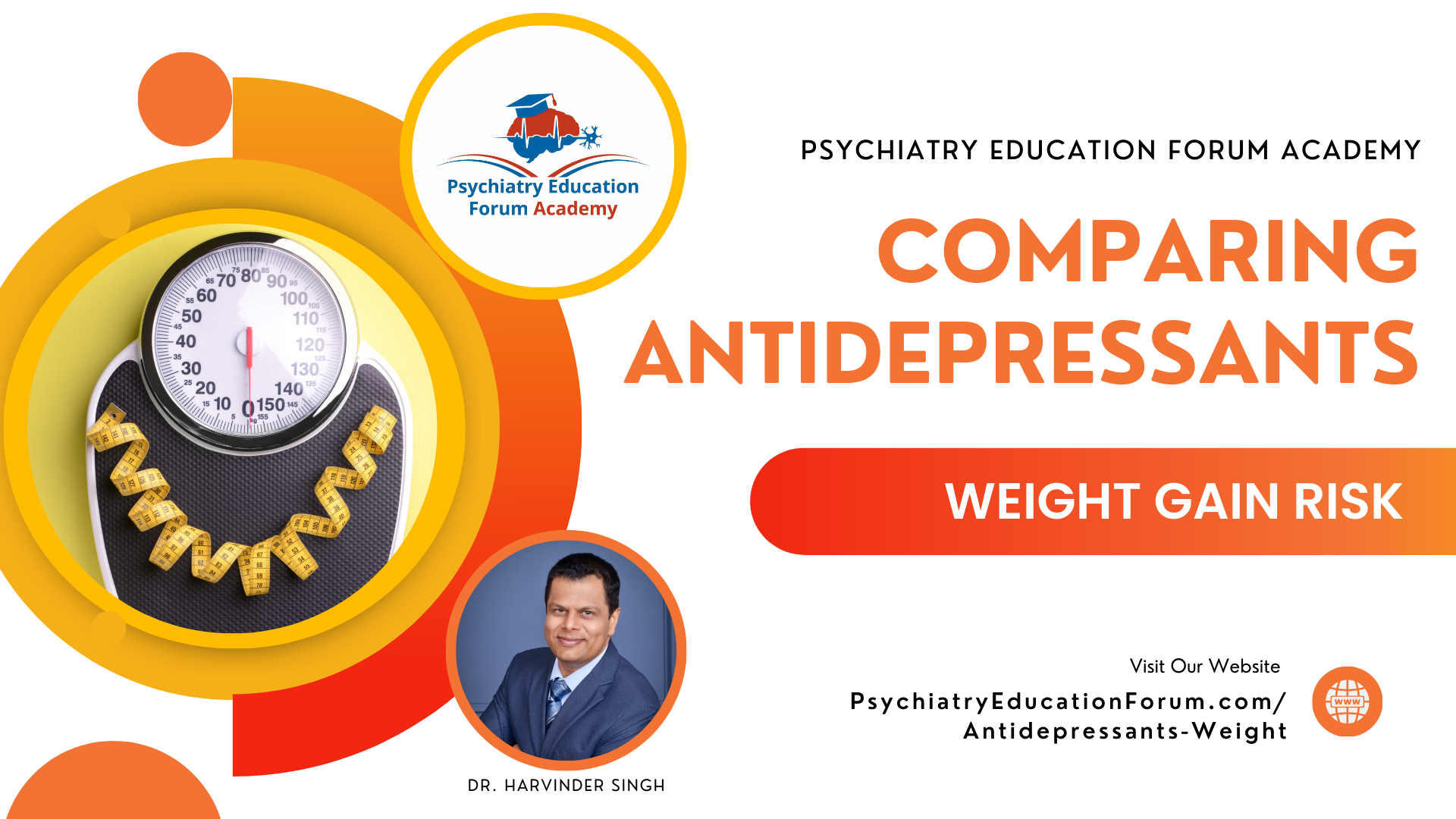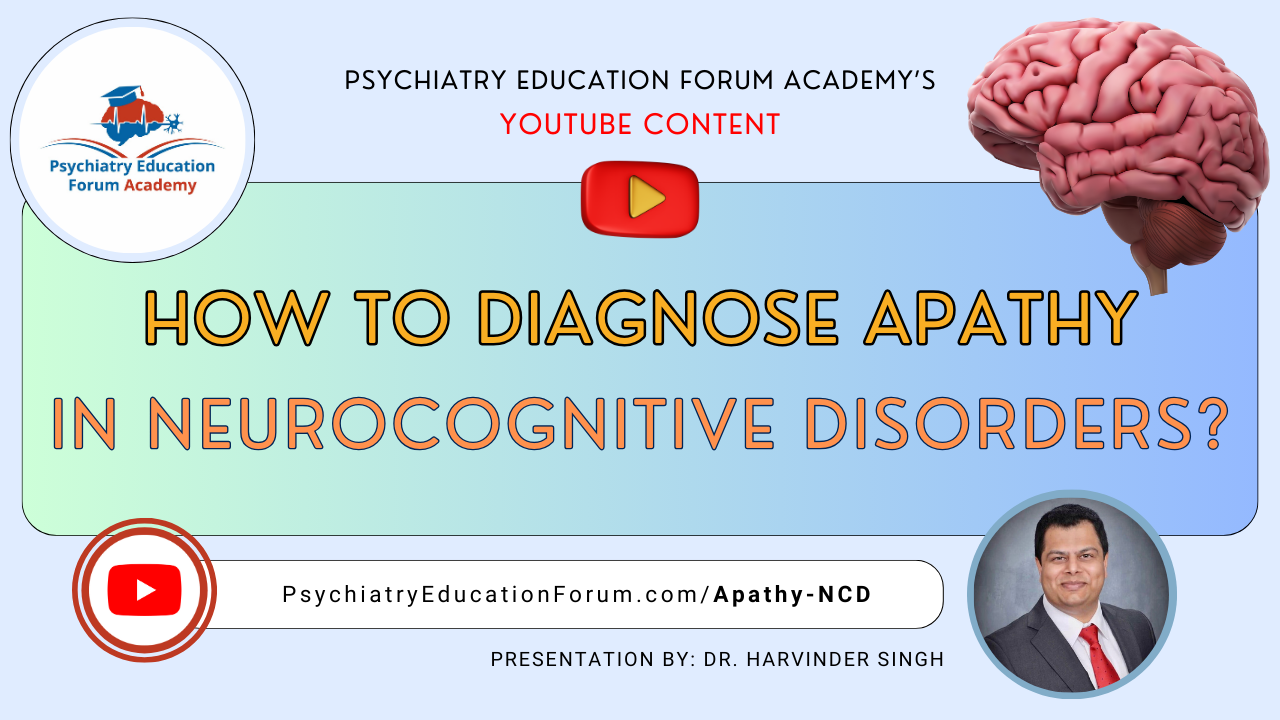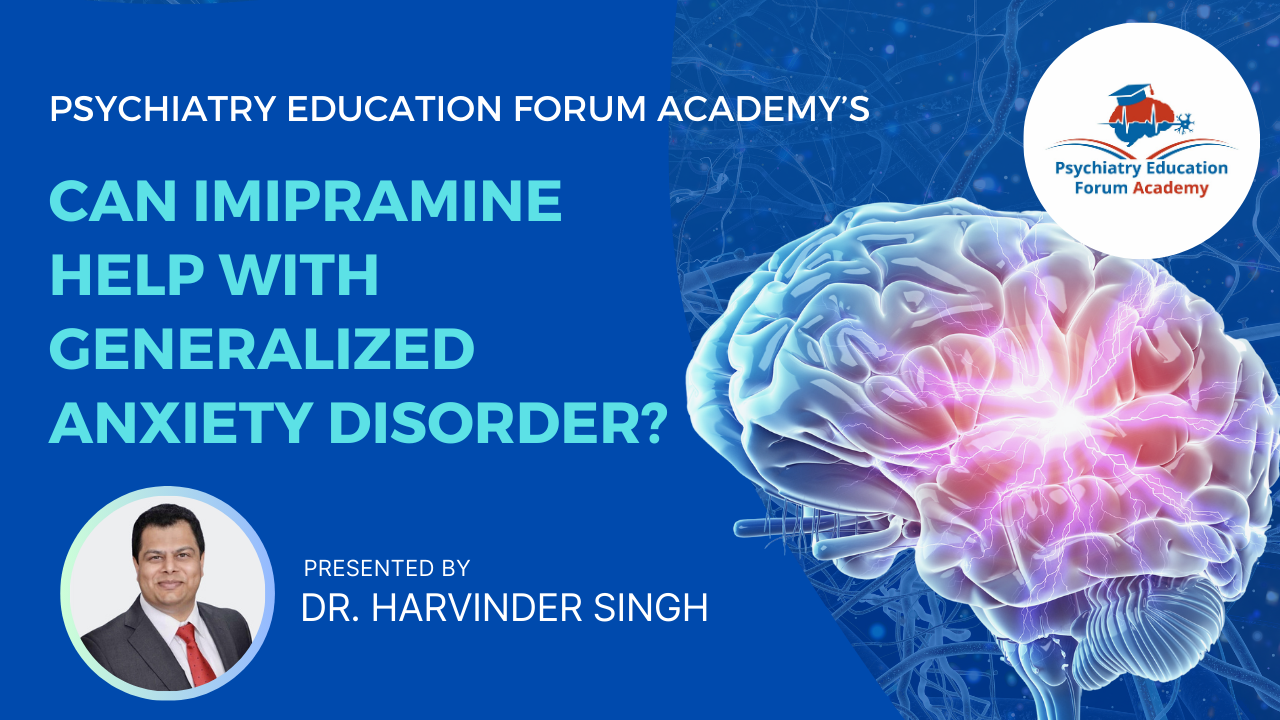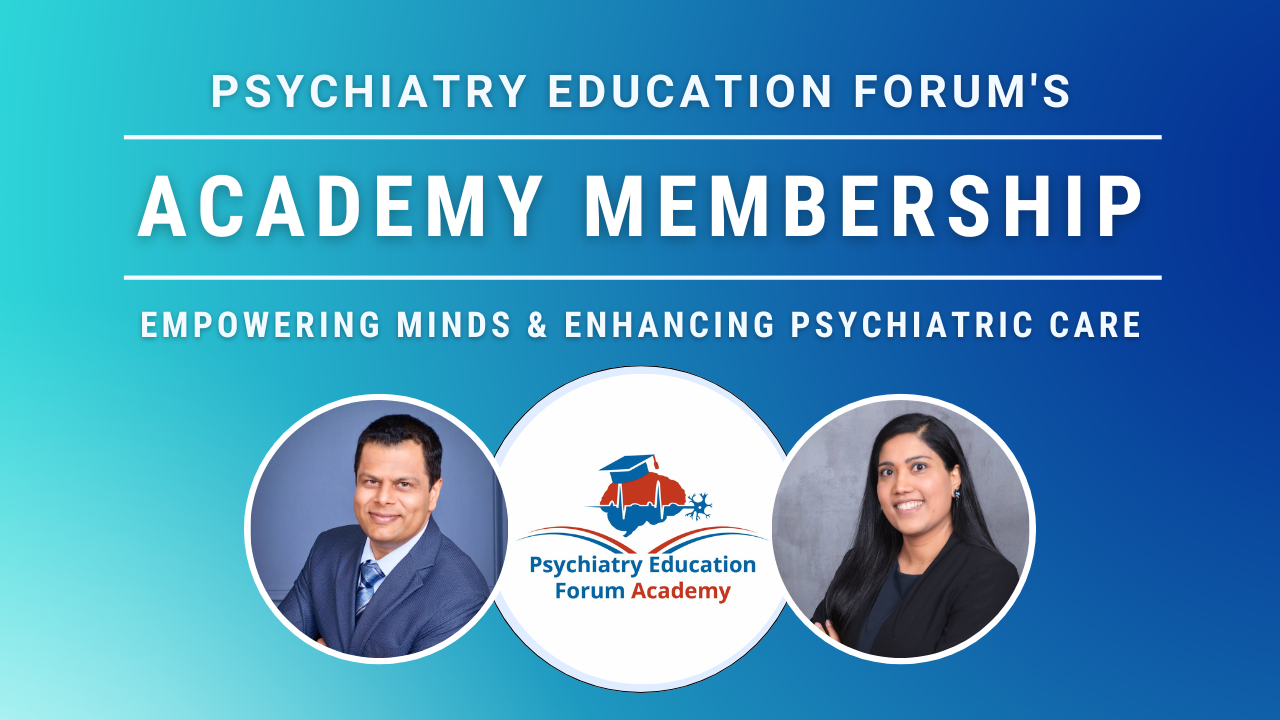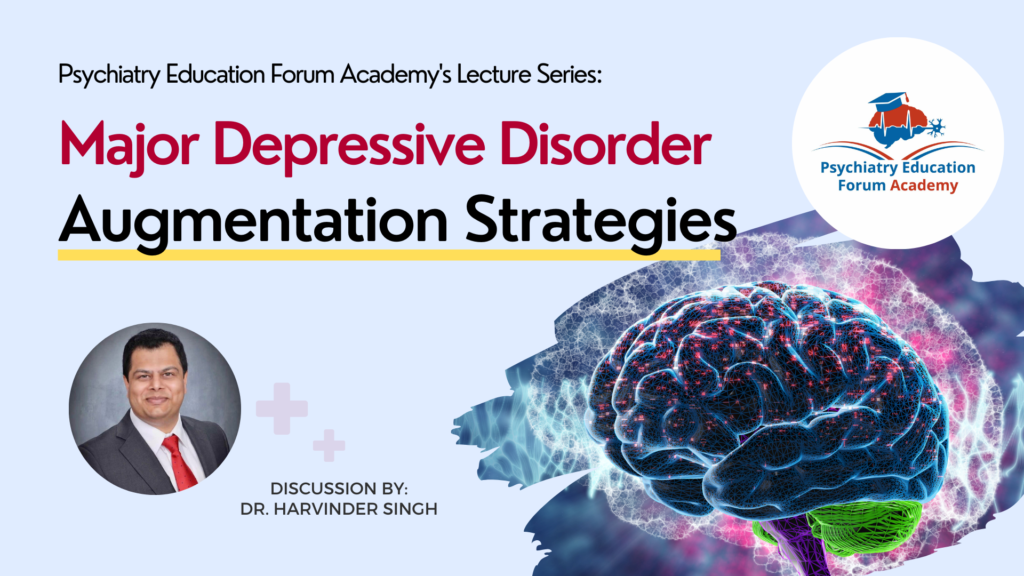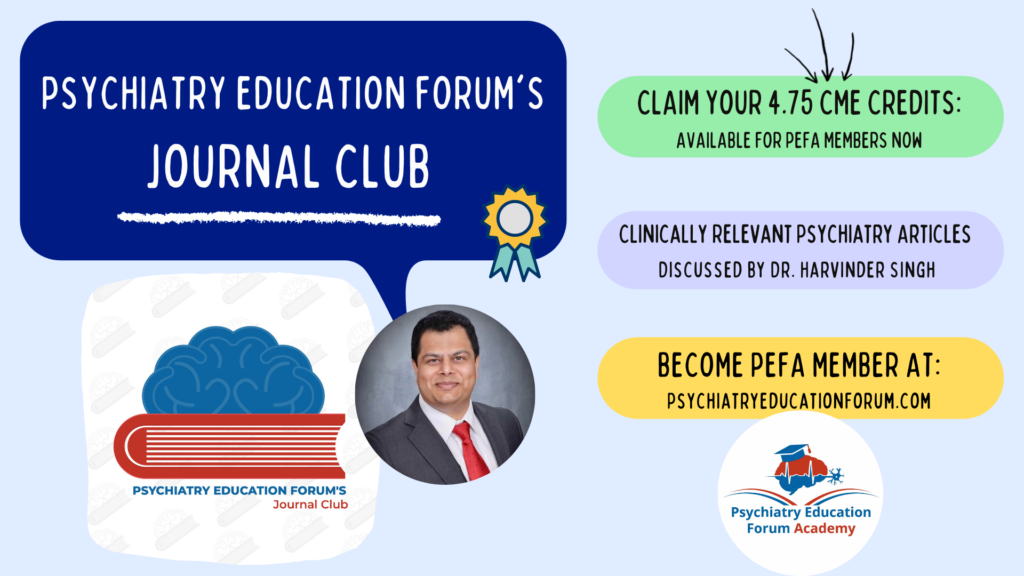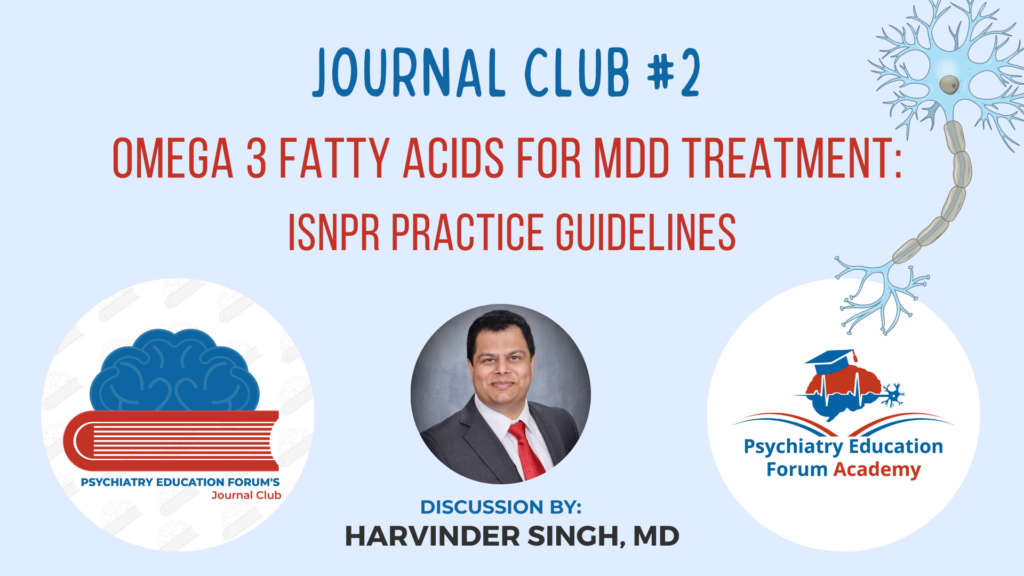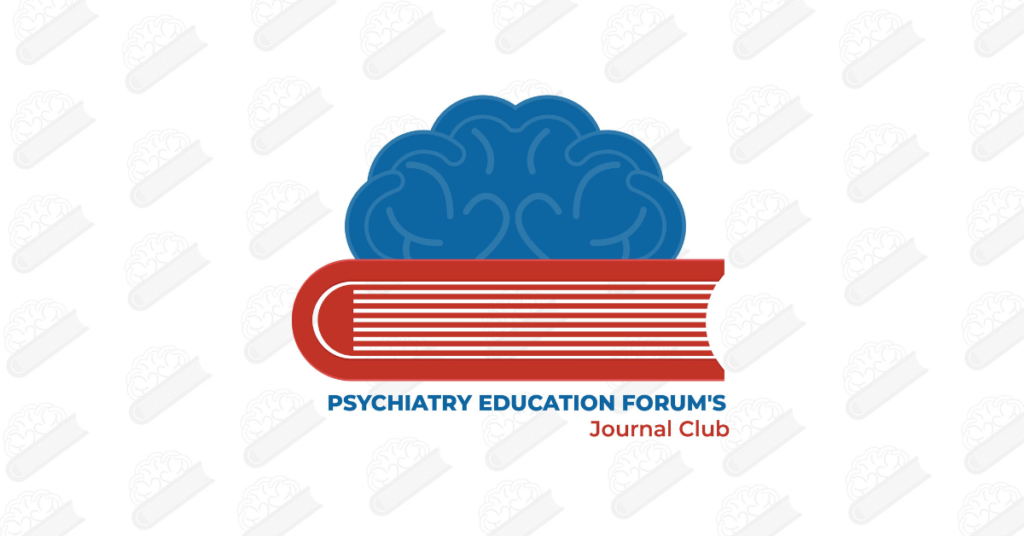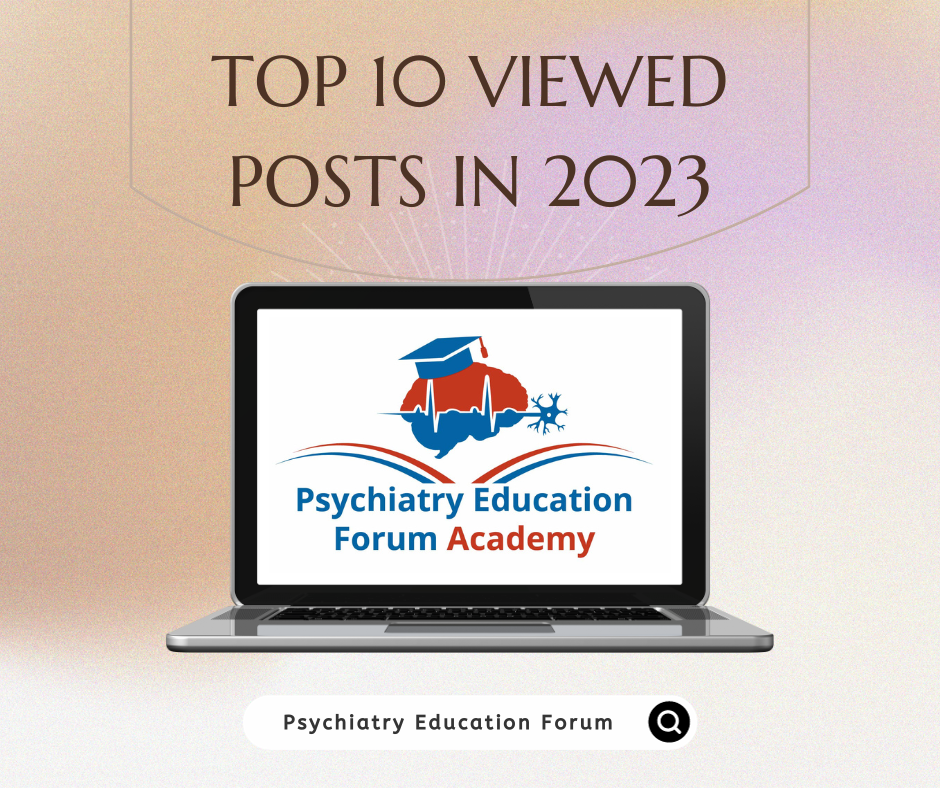Top 10 Viewed Posts of 2024


As we approach the end of 2024, I want to wish you all a safe and Happy New Year. Hope this new year makes all your dreams come true, and your wishes fulfilled. Happy New Year to all our dear students and followers.
On this last week of 2024, let’s review our top 10 viewed posts of this year:
FDA UPDATES:
(1) FDA Approved Cobenfy:
Non-Dopaminergic Treatment for Schizophrenia
Cobenfy is a combination of two drugs: xanomeline and trospium chloride.
In this video, Dr. Harvinder Singh has discussed this new medication in the following sections:
- Mechanism of Action: How is this different from other antipsychotics
- How to Dose and What to check Before Dosing?
- Contraindications & Cautions.
- Common Side Effects
- Can this cause EPS, Weight Gain & QTc Prolongation?
- Drug Interactions
MAJOR DEPRESSIVE DISORDER (MDD):
(2) Comparing MDD Augmentation: Atypical Antipsychotics vs. Lithium vs. Thyroid
When it comes to managing Major Depressive Disorder (MDD), many patients do not achieve full remission with standard antidepressant therapies alone. This is where augmentation strategies become crucial.
This video will compare three commonly used augmentation options for MDD:
- Atypical antipsychotics,
- Lithium, and
- Thyroid hormone
WOMEN’S MENTAL HEALTH:
(3) How to Safely use Lithium with Breastfeeding?
Welcoming a new life into the world is a joyous occasion, but for mothers grappling with bipolar disorder, the decision to breastfeed becomes a nuanced consideration when lithium is part of their treatment plan.
Balancing the benefits of breastfeeding with the potential risks associated with lithium use requires careful evaluation and open communication with healthcare professionals. This collaborative approach empowers both parties to make informed decisions that align with the best interests of both mother and child.
PSYCHOPHARMACOLOGY: DRUG INTERACTIONS
(4) Adding Oral Contraceptives to Lamotrigine
In the realm of healthcare, the co-administration of medications requires careful consideration to ensure both safety and efficacy. One such intriguing interplay exists between lamotrigine, a commonly prescribed mood stabilizer & antiepileptic medication, and oral contraceptives, a popular form of birth control. Watch this video where Dr. Harvinder Singh has briefly discussed this clinically relevant topic.
PSYCHOPHARMACOLOGY: ADVERSE REACTIONS
(5) Which Antipsychotics have Highest Pneumonia Risk?
Antipsychotic medications are critical in managing schizophrenia and other related disorders, but they come with various side effects, one of which is the increased risk of pneumonia. A comprehensive study published in JAMA Psychiatry in June 2024 (JAMA Psychiatry. 2024;81(10):967-975) offers valuable insights into the comparative pneumonia risks associated with different antipsychotic medications.
This post has delved into the key findings and their implications for clinical practice.
CHILD & ADOLESCENT PSYCHIATRY:
(6) Antipsychotics vs Anti-epileptics or Lithium for Acute Mania in Children & Adolescents: What Does the Latest Research Say?
This post has summarized the recent findings from the network meta-analysis published in the Journal of the American Academy of Child & Adolescent Psychiatry in August 2024 provide valuable insights into the treatment options for acute mania in children and adolescents.
ADDICTION PSYCHIATRY:
(7) How to Dose Varenicline for Smoking Cessation: A Comprehensive Guide
Varenicline is one of the effective treatment for smoking cessation. Hence, it is important to have the knowledge on how to initiate treatment, and how is Varenicline compared to other available treatment options. This post has summarized this topic for your clinical relevance.
PSYCHOPHARMACOLOGY: COMPARING MEDICATIONS
(8) Understanding Weight Gain Risks with Antidepressants: Key Findings from Recent Research
This post has summarized the the recently published study that examined the weight gain associated with eight commonly prescribed antidepressants: Fluoxetine, Paroxetine, Sertraline, Citalopram, Escitalopram, Venlafaxine, Duloxetine and Bupropion.
GERIATRIC PSYCHIATRY:
(9) How to Diagnose Apathy in Neurocognitive Disorders?
Apathy, characterized by diminished motivation, reduced goal-directed behavior, and a lack of emotional responsiveness, is a common but often overlooked symptom in various neurocognitive disorders. This symptom can significantly impact the quality of life, not only for patients but also for their caregivers and families.
This post will aim to shed light on the nuanced process of diagnosing apathy in neurocognitive disorders: based on 2021 Consensus Diagnostic Criteria for Apathy in Neurocognitive Disorders.
ANXIETY DISORDERS:
(10) Can Imipramine help with Generalized Anxiety Disorder?
For individuals facing treatment-resistant Generalized Anxiety Disorder (GAD), exploring alternative medication options becomes crucial in the quest for relief. When traditional treatments such as selective serotonin reuptake inhibitors (SSRIs) or benzodiazepines prove ineffective, healthcare professionals should consider other classes of medications. This post has summarized the role of Impiramine in Generalized Anxiety Disorder treatment:
INTERESTED IN ACCESS TO THIS & OTHER CLINICALLY RELEVANT LECTURE SERIES?
JOIN ACADEMY MEMBERSHIP:
This is a closed membership for medical professionals only.
- 400+ Clinically Relevant Chapters: Each chapter within these sections is of direct clinical relevance for your daily practice. (Table of Content)
- Journal Club: we will post the most recently published psychiatry articles relevant to your daily clinical practice. (Read Content)
- Clinical Case Discussion: Dr. Singh (Psychiatry) and Dr. Kaur (Family Medicine) discuss clinical cases to integrate the clinical cases from Psychiatry and Medicine. (Read Content)
- Monthly Insights: Gain access to our monthly sessions featuring the latest on recent publications, new medication approvals, FDA updates, and more. (Monthly Insights)
- Discussion Forum & Community: Connect with other medical professionals and discuss your difficult-to-treat clinical cases. (Academy Network)
- Goal: is to have all important clinically relevant topics in one place for ease of access.
DISCOUNTS AVAILABLE FOR: Residents & Students ONLY.
Email us your student information (program information and way to confirm your student status) to: [email protected]
© 2026 All Rights Reserved.
